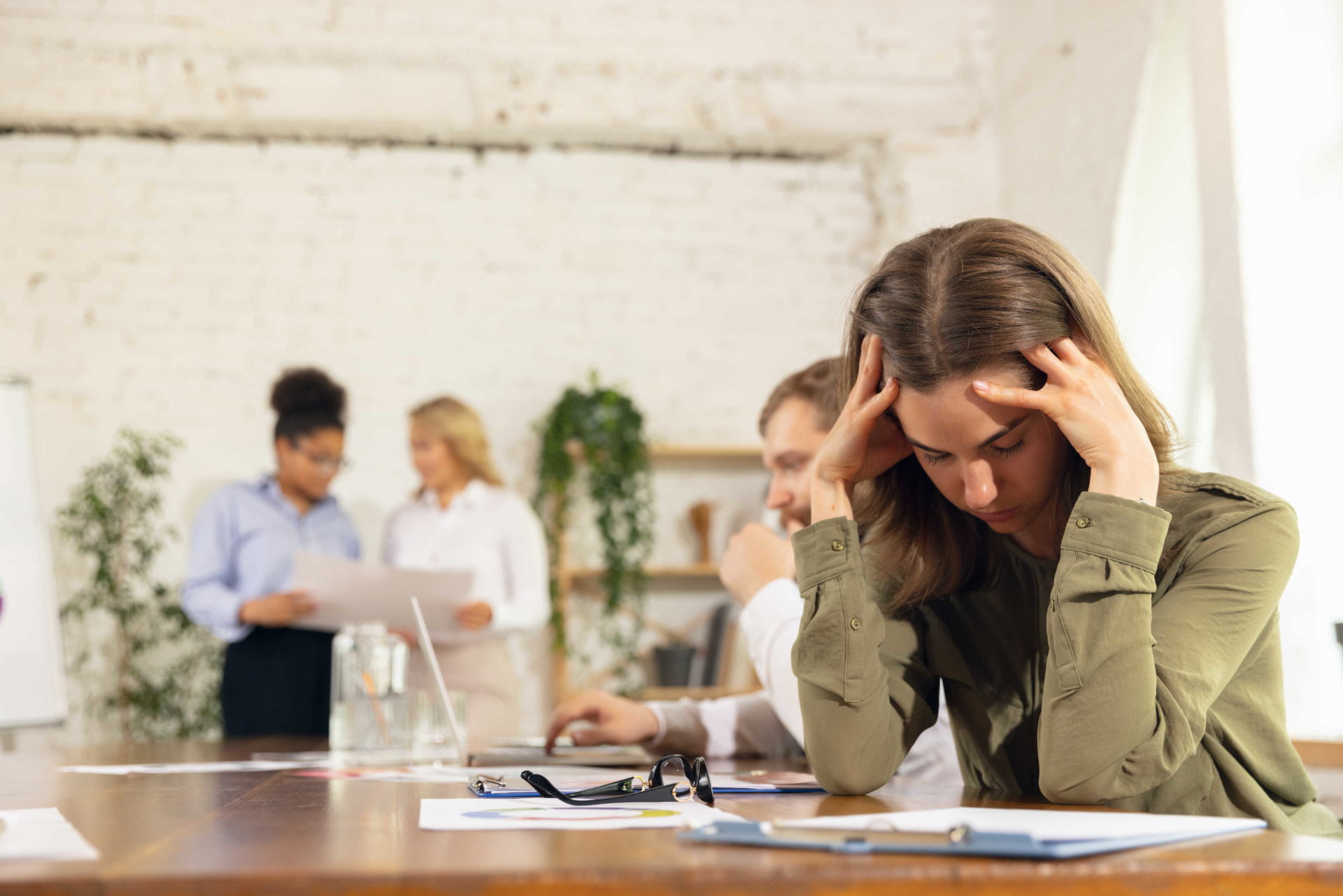Karrier- és Hallgatói Szolgáltatóközpont
Social anxiety – How can you more courageously express yourself in company?
 Sometimes you can’t say anything in certain situations? You feel that it would be better that the ground opens up below you if you don’t say something funny or clever?
Sometimes you can’t say anything in certain situations? You feel that it would be better that the ground opens up below you if you don’t say something funny or clever?
This feeling appears often in many people. It may happen if you have to give a lecture in a class, answer questions, or in informal situations, in the corridor, between lessons.
Often it is not even realized what is going on inside you. You may notice that you are blushing, you start to stammer, your mouth becomes dry, your hands and feet are trembling. You experience tension, anxiety.
But what causes this?
The situation is not dangerous in itself, but you experience it as such. Your body prepares to the “Fight or flight” response.
You often notice your physical symptoms and your feelings, but what is behind them?
Your own thoughts.
The negative, automatic thoughts in your head, which you may not even notice, cause this unpleasant anxiety.
Previous negative events, even imagined possible negative events are enough to make you think that you cannot solve a social situation.
“I’m sure they will look me like stupid that I cannot comment.” “I am not funny enough.” If I say something it turns out that I am boring.”
Such thoughts appear in such situations or if you are thinking of a similar situation.
These thoughts hinder you to try what if you just utter that comes to your mind about the given topic. Yes, it has the danger that your comment really won’t be “smart, funny, interesting, special” enough. But it may not be necessary that you have unique, perfect, original observation every single moment. It is more than enough that you participate in the communication, you seem to be open to your environment.
What do other people see in you at this time?
You tend to think, that they attribute negative qualities to you. However, it is most likely that the others are busy with themselves. If your anxiety is clearly visible from external physical symptoms, they will notice it, but at this time in people the intention to help comes first. They try to calm you and talk about such things, what is easier.
Contrary to what you might first think: “they will laugh at me”, “they will consider me stupid or lame”, “no one will ever talk to me again”.
What can you do against the paralysing effects of anxiety?
Try what happens if you join the conversation with any comment despite your fears. You will receive confirmation from the others: more attention, positive reactions. Thereby your new behaviour gets stronger instead of the previous avoidance.
If you don’t dare to take this step first, just imagine. Think about it in calm conditions, alone how the situation would go. If you think, write down the dialogs, so it will always be there, you can check it.
Consider your thoughts. Look what hinders you. Does it have a basis in reality? What percentage is its chance? What else can happen?
For example, if you are afraid they will laugh at you: what are the chances? You do not know, it can be up to 50%. Yes or no. What is your evidence that it can happen? You haven’t seen these people yet, you were once laughed at when you were a primary school student, because you answered wrong a question in the class. What is the other option if they do not laugh? Then they accept what you say and the conversation continues. What evidence can you provide for this? So far, even here at the university, no one has laughed at you or the others, Nice, sympathetic people, they would not do that. What you have to say is interesting and on topic. So, in the end what do you think about the percentage chance of being laughed at? Thinking about it this way, it is unlikely, maybe 5%. This calms you down, so you dare to speak up more courageously.
In addition to your thoughts, you can also deal with your physical symptoms: breathing is the easiest to control. If you feel that your heart starts to beat faster, you breathe faster, focus on the rhythm of your breathing. You can slow it down or speed it up as you like. This way you will feel that you are in control of your body and your reactions. Just like your breathing, you can calm yourself.
In long term, breathing and relaxation techniques reduce anxiety with regular practice.
Inappropriate methods of combating:
Excessive alcohol/drug use to resolve inhibitions (not a solution, only the symptoms are reduced, plus many such substances have much more harmful effects on your body and brain functions).
Total avoidance – escape from social situations. You’d rather stay at home, you do not participate in any social activities, in more serious cases: you do not attend classes, you skip exams and you have to retake a year.
If you feel that you cannot solve the situation alone or with the help of your friends, and your symptoms are getting stronger instead of decreasing, contact our psychologist at


